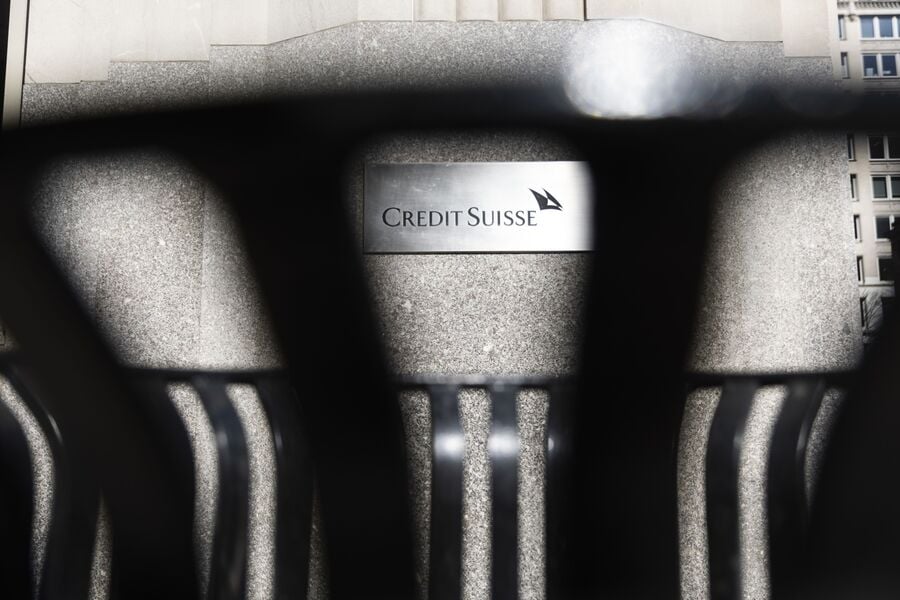

Credit Suisse Group AG continues to help rich Americans hide assets from the IRS almost a decade after a unit pleaded guilty to tax evasion conspiracy, the U.S. Senate Finance Committee said, as the bank’s woes mount amid broader tumult in the industry.
The committee uncovered “major violations” of the $2.6 billion plea deal Credit Suisse reached with the Justice Department in 2014, according to a report released Wednesday. The report cited “what may be an ongoing criminal tax conspiracy” involving almost $100 million in secret offshore accounts belonging to a family of dual US-Latin American citizens.
In a statement accompanying the report, Senator Ron Wyden, the Oregon Democrat who chairs the committee, slammed “greedy Swiss bankers” who appear to be engaged in a “massive, ongoing conspiracy to help ultra-wealthy U.S. citizens to evade taxes and rip off their fellow Americans,” despite Credit Suisse’s promises.
Several other Swiss banks — Union Bancaire Privee, PKB Privatebank AG and Bank Leumi — received undeclared funds in 2012 and 2013 from the family, the committee said. UBP had no immediate comment, while PKB and Bank Leumi didn’t immediately respond to requests for comment.
The committee said Credit Suisse has identified at least $780 million in undeclared assets disclosed since the bank’s guilty plea in 2014. They include:
The report comes as the bank is being sold to rival UBS amid global turmoil in the industry, set off by the run on Silicon Valley Bank in California, and as UBS and Credit Suisse are under a Justice Department probe into whether financial professionals helped Russian oligarchs evade sanctions. On top of that, it came out right after prosecutors in France raided some of the nation’s largest lenders, including Societe Generale SA and BNP Paribas SA, as part of an investigation into suspected tax fraud and money laundering.
The report raises new challenges for UBS as it takes over a bank that could face further action from the Justice Department. As the Credit Suisse rescue plan emerged, UBS expressed concern about taking on its rival’s potential legal liabilities. Banks can face severe penalties for breaching U.S. sanctions. BNP Paribas in 2014 agreed to pay almost $9 billion after pleading guilty to U.S. charges for processing transactions for sanctioned Sudanese, Iranian and Cuban entities.
Credit Suisse said it does not tolerate tax evasion, and its new management is “actively cooperating” with the Justice Department and other U.S. authorities to address remaining legacy conduct or policy concerns.
“Our clear policy is to close undeclared accounts when identified, and to discipline any employee who fails to comply with bank policy or falls short of Credit Suisse’s standards of conduct,” the bank said.
To oversee the historic acquisition of Credit Suisse, UBS is bringing back Sergio Ermotti as chief executive officer.
Under the 2014 plea agreement, Credit Suisse still has an obligation to identify all undeclared accounts to the Internal Revenue Service. The committee uncovered two dozen “large, potentially undeclared accounts” belonging to wealthy clients, the report said. Last year, the bank identified 10 clients with accounts of $20 million or more. In recent days, the bank also disclosed another 13 accounts with $20 million or more that may be held by U.S. individuals.
Wyden said the Senate’s investigation shows Credit Suisse didn’t live up to the 2014 deal and that its pending acquisition by UBS “does not wipe the slate clean.” The senator called on the Justice Department to crack down on “repeat offenders like Credit Suisse” and pursue criminal investigations of individual bankers.
“It is deeply concerning that almost nine years after executives testified before Congress that the bank would clean up its act, Credit Suisse is still disclosing hundreds of millions of dollars in secret offshore accounts belonging to wealthy U.S. taxpayers,” the report said.

Relationships are key to our business but advisors are often slow to engage in specific activities designed to foster them.

Whichever path you go down, act now while you're still in control.

Pro-bitcoin professionals, however, say the cryptocurrency has ushered in change.

“LPL has evolved significantly over the last decade and still wants to scale up,” says one industry executive.

Survey findings from the Nationwide Retirement Institute offers pearls of planning wisdom from 60- to 65-year-olds, as well as insights into concerns.
Streamline your outreach with Aidentified's AI-driven solutions
This season’s market volatility: Positioning for rate relief, income growth and the AI rebound
